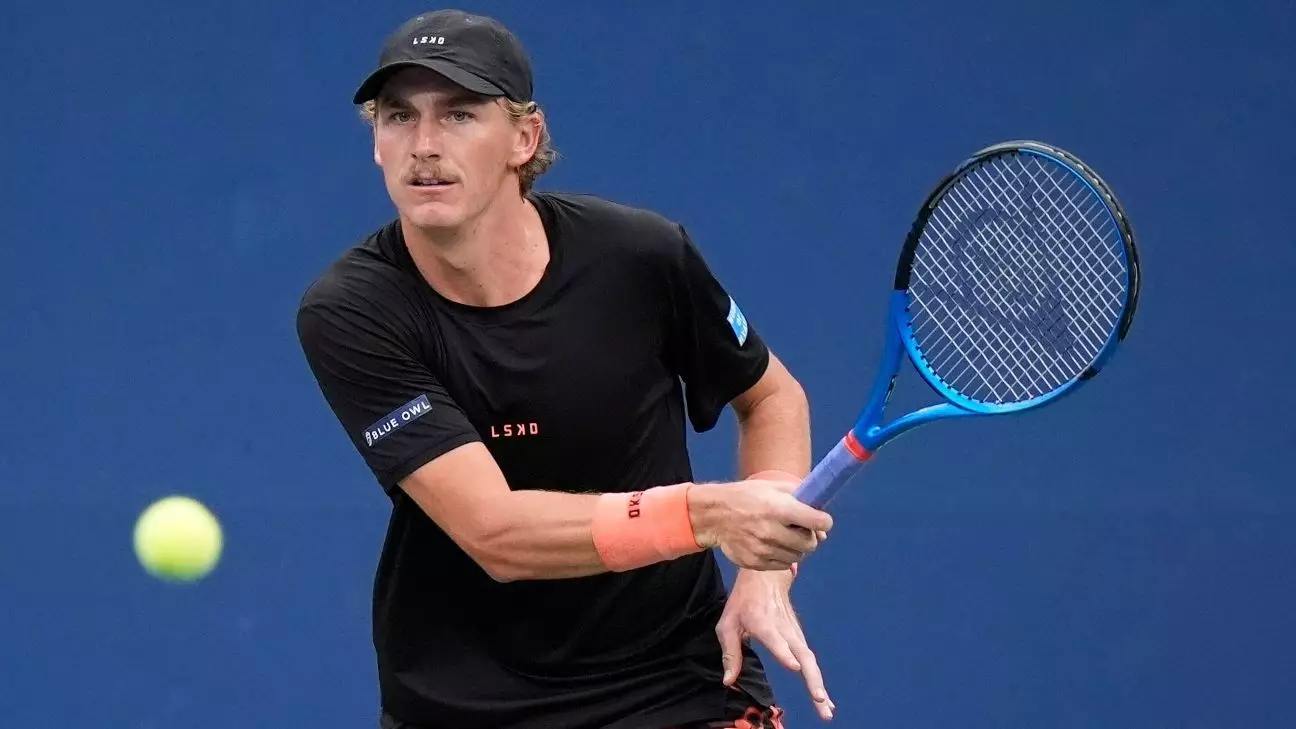In a shocking turn of events, Max Purcell, the Australian tennis star known for his prowess in doubles, has voluntarily accepted a provisional suspension after breaching anti-doping regulations. The International Tennis Integrity Agency (ITIA) confirmed this suspension, marking a significant moment not only in Purcell’s career but for the sport as a whole. Admitting to a violation related to the use of a prohibited method has cast a shadow over the achievements of a player who recently celebrated victories at the U.S. Open and Wimbledon. This incident emphasizes the stringent measures governing athlete conduct and the constant vigilance required to maintain the integrity of professional sports.
The Implications for Purcell’s Career
As a prominent figure in doubles tennis, Purcell’s absence from the court due to this suspension raises critical questions about his future in the sport. Currently ranked No. 12 in doubles, the fallout from his suspension could hinder his career trajectory. Provisional suspensions serve as a crucial deterrent, preventing players from engaging in competitions sanctioned by tennis authorities, including major tournaments like the Australian Open. His notable absence from upcoming championship entries suggests that this suspension will have immediate repercussions on his ranking and career-long aspirations.
Moreover, Purcell’s previous accolades, including two Grand Slam titles and multiple finals appearances, are now clouded by suspicion and concern regarding his professional conduct. The question looms—will this tarnish his reputation, or can he rebuild and reclaim his place in the competitive arena?
Purcell is not the first player to confront the consequences of doping violations. The recent surge in doping-related incidents within tennis highlights a growing crisis in the sport. Just weeks prior, renowned player Iga Swiatek accepted a one-month suspension after testing positive for trimetazidine, further illuminating vulnerabilities within the tennis community. The contrast in outcomes, compared to players like Jannik Sinner—who was exonerated despite a positive test—underscores the complexities involved in doping cases, casting a pall over the sport’s integrity.
While the ITIA has implemented strict regulations to combat doping, these incidents raise concerns regarding the efficacy of the current anti-doping procedures. With various players facing penalties, the sanctioning process must be transparent and fair to maintain player trust and public confidence in tennis.
Looking forward, Purcell’s journey back into the sport will require not just compliance with suspension terms but also a concerted effort to regain the trust of both the fans and fellow players. The path to redemption often involves more than just serving a suspension—athletes must demonstrate their commitment to fair play and rebuilding their image.
The incident acts as a crucial reminder of the rigorous environment professional athletes navigate, balancing success with scrutiny. As Purcell contemplates his future, the tennis community watches closely, hoping this incident sparks necessary conversations on doping and the structures in place to uphold clean competition. The return of Purcell, once eligible, will not only be a personal victory but also an opportunity for him to influence and inspire others within the sport to strive for integrity and honesty.


Leave a Reply